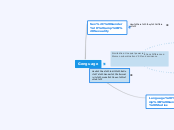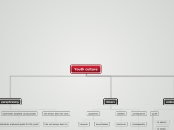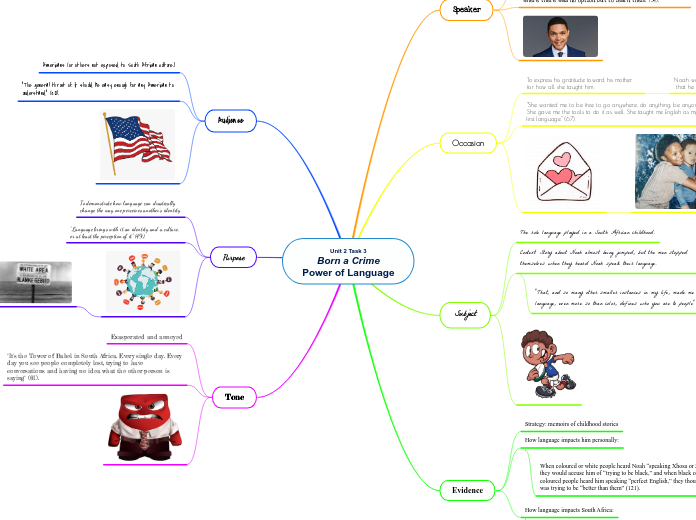What are some common linguistic features of women’s language identified by Lakoff?
Highlights women's subordinate role
- Use of hedges (kinda)
- Use of fillers (well, hmm, err)
- Frequent use of tag questions (It’s delicious, right?)
- Rising intonation even when not asking a question
- “empty” adjectives (marvelous, cute)
- Frequent use of intensifiers (sooooo delicious)
- Indirect requests and euphemisms
- Avoidance of strong swear words
- Rarely interrupts conversations
(Lakoff, 1975)
How are women regarded when they conform/do not conform to these linguistic features?
If women...
- Conform to expectations and adopt the linguistic features:
ridiculed as unable to think clearly, unable to take part in a serious discussion: in some sense, as less than fully human.
- Do not conform to expectations and do not adopt linguistic features:
ridiculed as unable to think clearly, unable to take part in a serious discussion: in some sense, as less than fully human.
(Lakoff, 1975)
What does this suggest?
No matter if women use or do not use linguistic features, they will still be regarded negatively.
Genguage
Genguage = Gender + Language
Language & Gender Studies
Dynamic Model
This model is first introduced by linguist and author Jennifer Coates in her book Women, Men and Language (Coates, 1986)
How are our views of gender formed?
Perceptions of gender are not predetermined
Formed through performance and construction in language between interlocutors, which is congruent with gender performativity, as first introduced by Judith Butler.
How has Judith Butler's Gender Performativity model been refutted?
According to Butler,
Gender cannot act as a stable identity.
However...
If this is the case, how do people growing up with gender dysphoria justify the mismatch that they feel between their gender at birth and gender at growth? (Ton ,2018)
What is the situation like for the LGBTQ community in Singapore?
Portrayal of queer people in the media:
Drag queen
Salome Blaque
Stereotypes exist in other mediums of communication:
TV show
s (“Dear, Dear Son-In-Law”, 2007) :
Suggests family's father being homophobic
Short clips
by local newpaper (SPH Razor, 2013a) :
Suggests that trans women do not know how to behave like a ‘woman’
Is there any party supporting inclusivity?
Uber, an apt example of a company supporting inclusivity
Uber advertisement
(Uber Singapore, 2017)
featured a gay man in an Uberpool ride and his unprejudiced ride sharer, leaving positive notes of acceptance for the community that the people should extend too
What does it encompass?
Performance -> Elicit response -> Perception formed
(Meyerhoff, 2014; Van Herk, 2011)
Performance
How we behave, talk and present ourselves
Response
From interlocutor (person you are interacting with)
Perception
about the idea of gender and sexuality
What does it mean when you say that someone is not performing their gender?
When someone does not behave according to societal's expectation of how that certain gender should behave.
Examples
When women,
- Speaks with a 'potty mouth' (Fine and Johnson, 1984).
- Adopts an assertive instead of hesitant manner of speaking (Van Herk, 2011).
- Demonstrate a more neutral way of speaking (Ministry of Defence, 2011; ZULA, 2017).
Difference Model
Focuses on gender-based cultural differences
Men
- Report-style (to communicate facts)
Women
- Rapport-style (to build solidarity)
How does the Singapore's media portray this concept?
Tanglin
A Singaporean drama series on MediaCorp Channel 5 that had over 823 episodes since it aired in 2015
Episode 3, 15:40-16:00
Shows how men use language to build their status
Eg. Wafiq used language to assert his status as acting CEO of the company
Episode 5, 12:05-12:30
Shows how women seek and provide support using the network of connections
Eg. Ann tried to seek empathy from the man she was talking to.
Episode 13, 2:24-2:54
Shows how men use language to convey a message
Eg. Male boss addressed a huge mistake made regarding the mix up of a patient's drug presciption.
Episode 1, 40:37-41:57
Shows that in the situation of dealing with a problem, men uses language to find a solution while women uses it to obtain comfort and sympathy.
Eg. Ah Kong and Ben were persuading Mdm Lee to visit a doctor without considering her feelings that undercut her resistance. Mdm Lee used language to seek sympathy and support and garnered support from Li Yan.
Episode 4
Shows how men are more direct in delivering orders using imperative while women adopt super-polite forms when asking for a favor
Eg. The women in the scene used 'please' when asking someone to help her to get more ice.
Episode 5 16:40-17:40
Episode 6 (1:20-1:30)
Shows the confrontational characteristics of men in resolving disagreement and the non-confrontational characteristic of women
Eg. Wafiq dissed Xue Ling when she suggested a marketing idea he wasn’t in favor of. He probably perceives this as a threat to his authority and dismissed her idea directly. She then vented out her dissatisfaction to her husband.
What are the differences between men and women according to this model?
Differences between Men and Women
How is language used?
Men: To one-up the other man or simply avoid being dominated
Women: To seek validation and support for their ideas
What implications does this have in a cross-gender interaction?
Conflicts and Communication barriers
They arise when one gender expect the other to communicate in the same way they do
Which individual contributed significantly to this model?
Deborah Tannen (Linguist)
She published a book 'You Just Don’t Understand', which presented a neutral stand (placing both men and women on equal footing) and introduced the concept of Genderlect.
What are the 6 categories illustrating the differences in Genderlects?
6 Categories
Status VS support
Information VS feelings
Understanding VS advice
Orders VS proposals
Conflict VS compromise
Independence VS intimacy
What does the Genderlect Theory propose?
Different gender adopts different language.
Dominance Model
Emphasizes on power differences and men being in power
Men
- Demonstrate characteristics of dominance
- Usually in control in conversation
Women
- Demonstrate features of submission
- Usually work to sustain conversation
How is it related in Singapore's context?
1) NYLON SINGAPORE
An online news publication that caters to the current, modern generation of Singapore.
In 2016, an anonymous confession was submitted and posted under the publication’s editorial team:
“Contrary to what most of you think, us girls are not all sugar and rainbows when we play games. We might be in real life, but it’s always hard to hold back the anger and shouts when something goes wrong in the middle of an intense battle (games).”
2) SNICKERS SINGAPORE
A very famous brand of chocolate in Singapore.
In one of their
advertisements:
There were many boys playing soccer together. The losing team was very frustrated with their goalkeeper, a ‘lady’, and got even more angry when the ‘lady’ sassed them. Later, one of the players gave the ‘lady’ a Snickers bar and ‘she’ transformed back into a man. The goalkeeper saved many goals after that.
3) MOTHERSHIP.SG
A popular news and video site for Singaporeans including official news about Singapore or lifestyle videos of other citizens.
video
A man was hurling profanities at a woman because she was taking too long at the Automated Teller Machine (ATM).
.
What is the situation like in Singapore regarding profanities?
Usage of Profanities: Less acceptable for female than males.
Stereotypes (Fine and Johnson, 1984)
Unfeminine
Harsh
Attention Commanding
'Male activity'
Who supported the dominance model?
It is greatly supported by scholarly, professional feminists such as Dale Spender.
Why?
It brings awareness to the harsh reality of treatment that some women still receive.
In her part of the work ‘Doing Feminist Research’, Dale Spender (1981) states that:
there is a problem of male dominance, which demands feminist attention.
What are the Linguistic features of Men?
Men's linguistic features are linked to power and superiority
- Falling intonation (to sound sure and confident)
- Lack of usage of explicit color words (like magenta or teal)
- Using less adjectives to describe things (so they appear less sensitive to their environment)
- Swearing words (which are considered harsh and commands attention)
- Lack of endearments (to appear less womanly and to not show any weakness)
- Frequent use of first person singular pronouns (because it’s all about them and no one else)
- Direct and to the point (when requesting for something to be done)
- More usage of imperatives (similar to commanding and ordering someone to do something)
- More frequent interruption (because they want to be heard first)
(Lakoff, 1975)
How is power defined by Lakoff?
POWER (Lakoff, 1975)
an unequal or non-reciprocal relationship between two or more speakers, predicting who (or, whose norms) will dominate an interaction.
Deficit Model
Represents how female language is subordinate to male language
Men
Women
- Female Speech = Deficient against Benchmark
- Linguistic features highlights women's subordinate role in society
According to Jespersen’s theories, what is societal's perception of women’s language?
Women's language
an inferior version of men’s language as the language use contributes to the social status and position of women in society
Hence, the term 'deficit' is derived from the concept.
How is societal's perception reflected in Singapore's media?
Examples reflecting societal expectation and perception of women:
1) Singapore Airlines Training
Female air stewardess are expected to be well-groomed, wear heels and constantly smile. Those are the traits which makes them highly feminine and proper. Linguistically, they are expected to speak with a sweet tone, to not interrupt and be humble in their speech.
2) Digital media
Hollywood's shows and movies: Portrayal of Women and their language use is highly showcased, which proliferates into the societal expectation and perception of women as someone who is less intelligent, more emotional and irrational compared to men.
Disney movies : further emphasizes women's role in society through language use and behavior of women in relation to men. This may lead to impressionable young audiences to believe and conform to the societal expectations of women since it is widely broadcasted all around the world.
3) Book: Emily of the Emerald Hill
A popular Singaporean literature written by Stella Kon that garnered enough attention to turn it into plays and musicals.
Official site
Musical's transcript of Emily's conversation with men:
a. “You will send [him] my best wishes, won’t you?”
b. “Deliver [the meat] to Emerald Hill?”
c. “I am only too happy to make my little contribution.”
Sex, Gender & Sexuality
How are they different?
GENDER
- Socially constructed
- Defined by social and cultural forces
- Flexible to change
SEX
- Innate & Biological
- Less likely to change
SEXUALITY
- Emotional and sexual attraction towards another sex (same or opposite)









